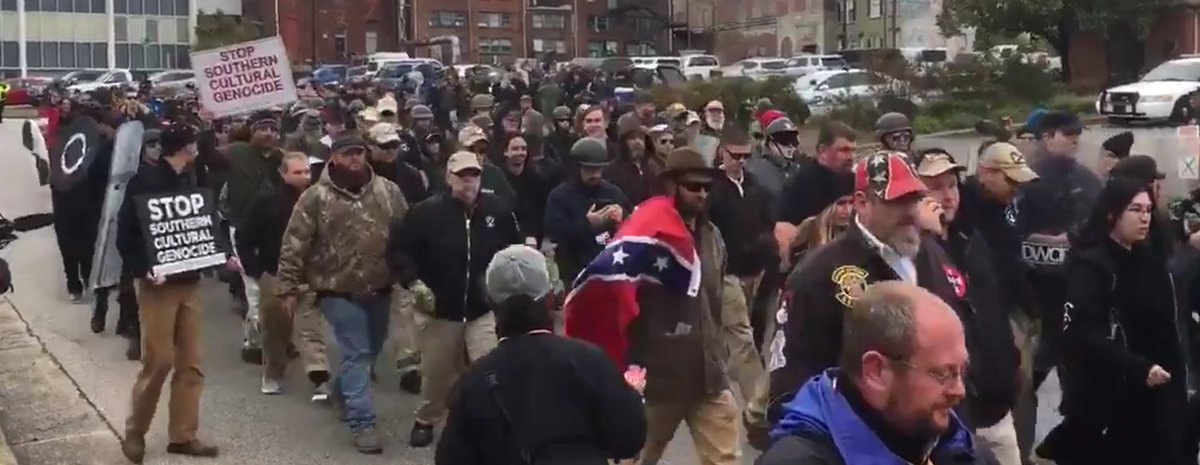1. Here are a few takeaways from, & initial analysis regarding, the #Shelbyville/#Murfreesboro white supremacist events in Tennessee today. 

2. Early estimates suggest as many as 200 white supremacists showed up, inc. neo-Nazis, Ku Klux Klan grps, alt right adherents & others. We
• • •
Missing some Tweet in this thread? You can try to
force a refresh






